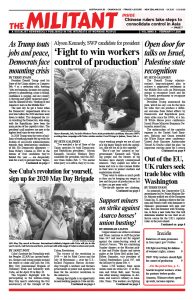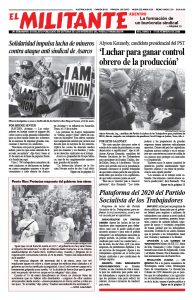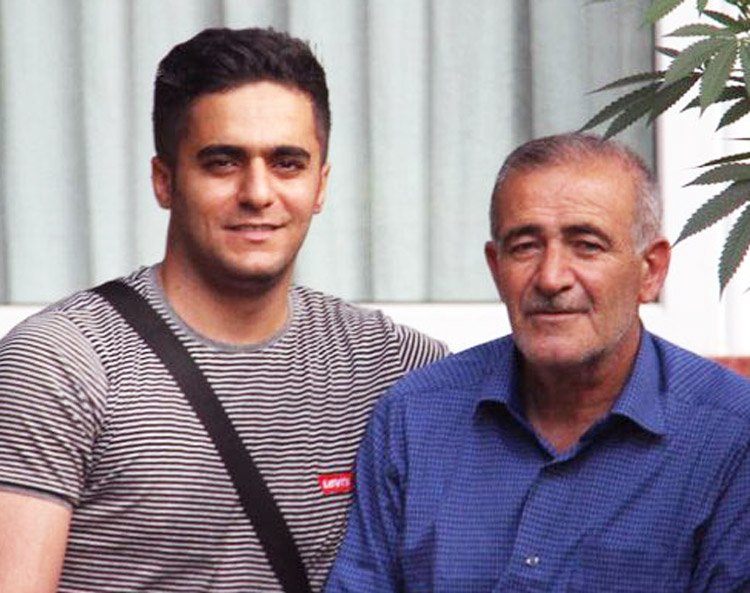Relatives of protesters who were murdered by Tehran’s security forces last November have spoken out against the authorities’ attempts to bribe them to lie about the killings. The protesters rose up against the bourgeois clerical regime’s wars abroad and the resulting economic crisis at home. The relatives are being pressed to register their slain loved ones as “martyrs” — that is, supporters of the regime — and to state publicly that they were shot dead by other protesters. Some 1,500 were killed and thousands more injured or arrested as the government moved to put down the protests.
Families are being offered one-off lump payments, monthly pensions, slots for their children at universities, and public sector jobs if they comply, and threatened with retaliation if they refuse, said the Kurdish news agency Rudaw.
Families in Kermanshah, Marivan, Sanandaj and Javanrood reported they were pressed to take the blood money.
The family of Borhan Mansournia — an Iranian Kurd who died when authorities delayed giving him medical treatment after they shot him at a protest in Kermanshah — told Rudaw they had refused.
A political crisis has been shaking the Iranian rulers since the mass protests began in late 2017. Each time the government represses the actions, they reappear larger and more determined.
Thousands took to the streets again this January to denounce the government and its cover-up of the Revolutionary Guard shooting down of a Ukrainian civilian aircraft last month in which all 176 on board were killed.
The regime’s interventions in Syria, Iraq, Lebanon, Yemen and elsewhere are an effort to extend abroad the counterrevolution they carried out at home against the working people who made the 1979 Iranian Revolution. Out of that massive popular struggle that overthrew the U.S.-backed shah, workers had organized councils in the factories and refineries to advance their demands, farmers organized to fight for land, Kurds and Arabs for their national rights and women mobilized to fight for equal rights.
The gains made were pushed back by the bourgeois clerical rulers, but the workers were never crushed.


